Changkun Jiang
DeepGATGO: A Hierarchical Pretraining-Based Graph-Attention Model for Automatic Protein Function Prediction
Jul 24, 2023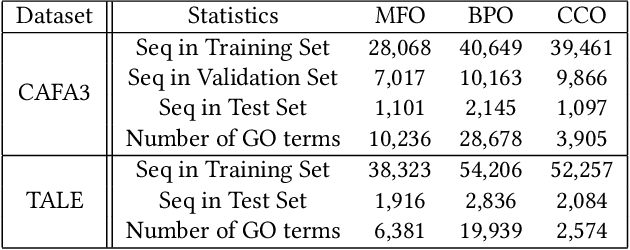
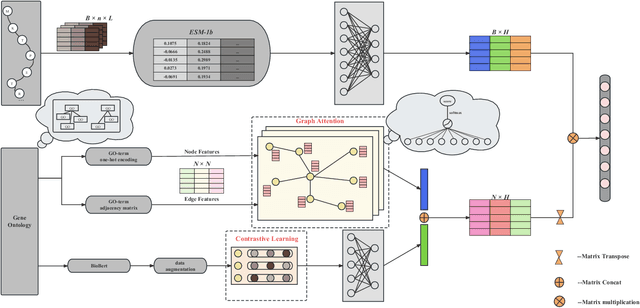
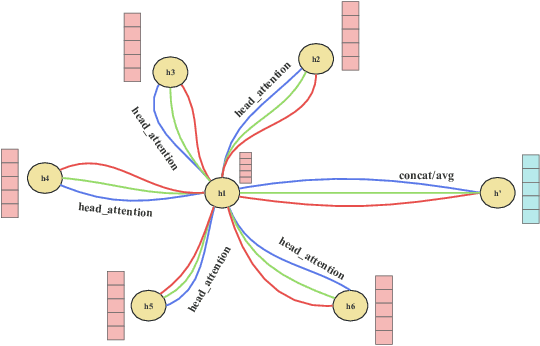
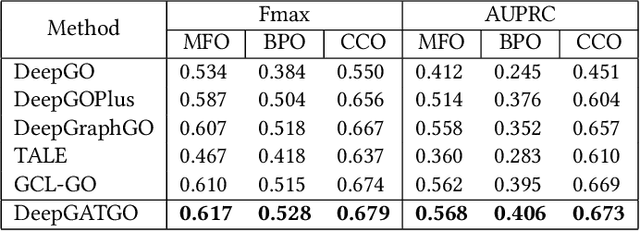
Abstract:Automatic protein function prediction (AFP) is classified as a large-scale multi-label classification problem aimed at automating protein enrichment analysis to eliminate the current reliance on labor-intensive wet-lab methods. Currently, popular methods primarily combine protein-related information and Gene Ontology (GO) terms to generate final functional predictions. For example, protein sequences, structural information, and protein-protein interaction networks are integrated as prior knowledge to fuse with GO term embeddings and generate the ultimate prediction results. However, these methods are limited by the difficulty in obtaining structural information or network topology information, as well as the accuracy of such data. Therefore, more and more methods that only use protein sequences for protein function prediction have been proposed, which is a more reliable and computationally cheaper approach. However, the existing methods fail to fully extract feature information from protein sequences or label data because they do not adequately consider the intrinsic characteristics of the data itself. Therefore, we propose a sequence-based hierarchical prediction method, DeepGATGO, which processes protein sequences and GO term labels hierarchically, and utilizes graph attention networks (GATs) and contrastive learning for protein function prediction. Specifically, we compute embeddings of the sequence and label data using pre-trained models to reduce computational costs and improve the embedding accuracy. Then, we use GATs to dynamically extract the structural information of non-Euclidean data, and learn general features of the label dataset with contrastive learning by constructing positive and negative example samples. Experimental results demonstrate that our proposed model exhibits better scalability in GO term enrichment analysis on large-scale datasets.
Deep Reinforcement Learning-Assisted Federated Learning for Robust Short-term Utility Demand Forecasting in Electricity Wholesale Markets
Jun 23, 2022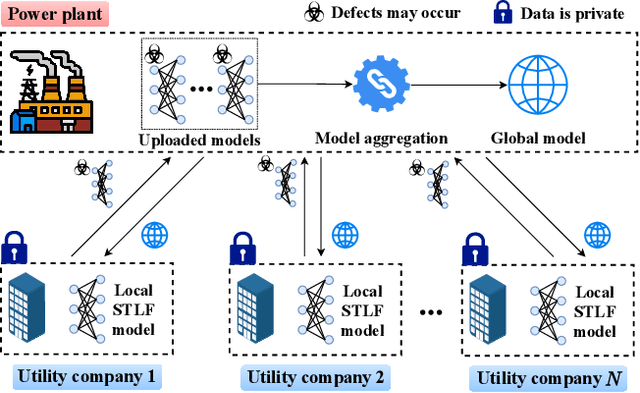
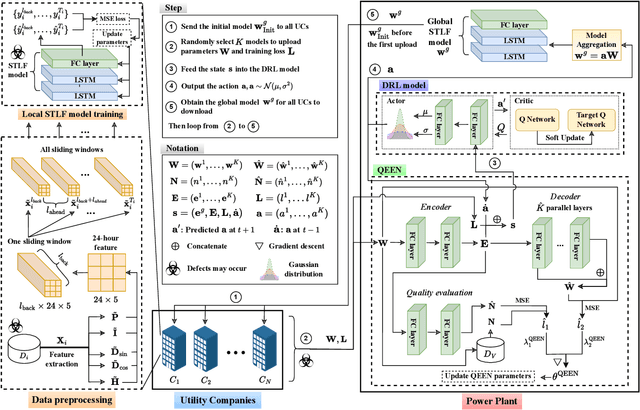
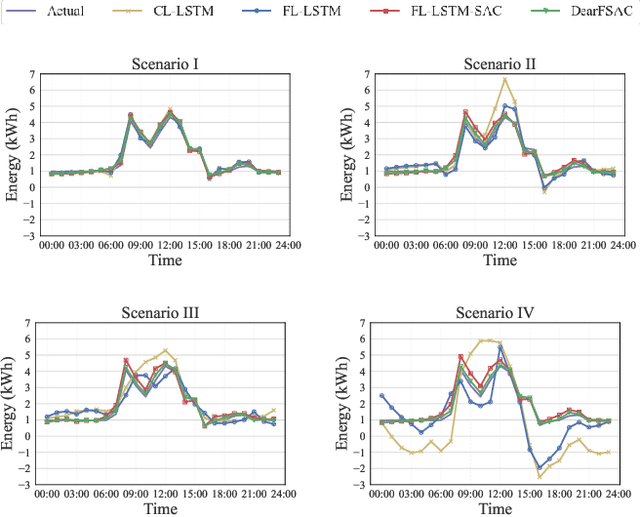

Abstract:Short-term load forecasting (STLF) plays a significant role in the operation of electricity trading markets. Considering the growing concern of data privacy, federated learning (FL) is increasingly adopted to train STLF models for utility companies (UCs) in recent research. Inspiringly, in wholesale markets, as it is not realistic for power plants (PPs) to access UCs' data directly, FL is definitely a feasible solution of obtaining an accurate STLF model for PPs. However, due to FL's distributed nature and intense competition among UCs, defects increasingly occur and lead to poor performance of the STLF model, indicating that simply adopting FL is not enough. In this paper, we propose a DRL-assisted FL approach, DEfect-AwaRe federated soft actor-critic (DearFSAC), to robustly train an accurate STLF model for PPs to forecast precise short-term utility electricity demand. Firstly. we design a STLF model based on long short-term memory (LSTM) using just historical load data and time data. Furthermore, considering the uncertainty of defects occurrence, a deep reinforcement learning (DRL) algorithm is adopted to assist FL by alleviating model degradation caused by defects. In addition, for faster convergence of FL training, an auto-encoder is designed for both dimension reduction and quality evaluation of uploaded models. In the simulations, we validate our approach on real data of Helsinki's UCs in 2019. The results show that DearFSAC outperforms all the other approaches no matter if defects occur or not.
 Add to Chrome
Add to Chrome Add to Firefox
Add to Firefox Add to Edge
Add to Edge